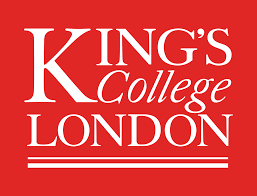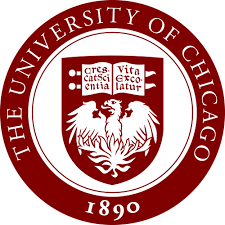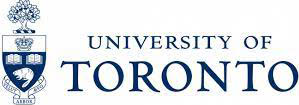Last school year, Grade 3 worked with Aaron Moniz of Inspire Citizens to plan a unit based on Sustainability. This unit proved to be very successful and impactful to the students as they began to make changes to their daily practices in the classroom and, hopefully, at home. The unit was developed in collaboration with the Outdoor Learning teacher.
This year, we did the unit for a second time. One of the main take-aways of this unit is having the students think about the 6 R’s – repair, re-use, recycle, rot, reduce and refuse, with the overall “R” being Rethink.
We started the unit by having students collect trash from their snack boxes for a week. This trash was saved every day. During Outdoor Learning time, students were invited to see the trash that they had collected and then sort it into different piles according to what it was or what it was made of. Students were generally amazed to see how much trash was generated when items could have been reused and did not enjoy the smell generated from the trash over time!


All of this coincided with a grade-level challenge that had the aim of reducing single-use plastic in snack boxes. During this part of the Unit of Inquiry, students were also invited to think about food wastage during lunch times in the cafeteria.
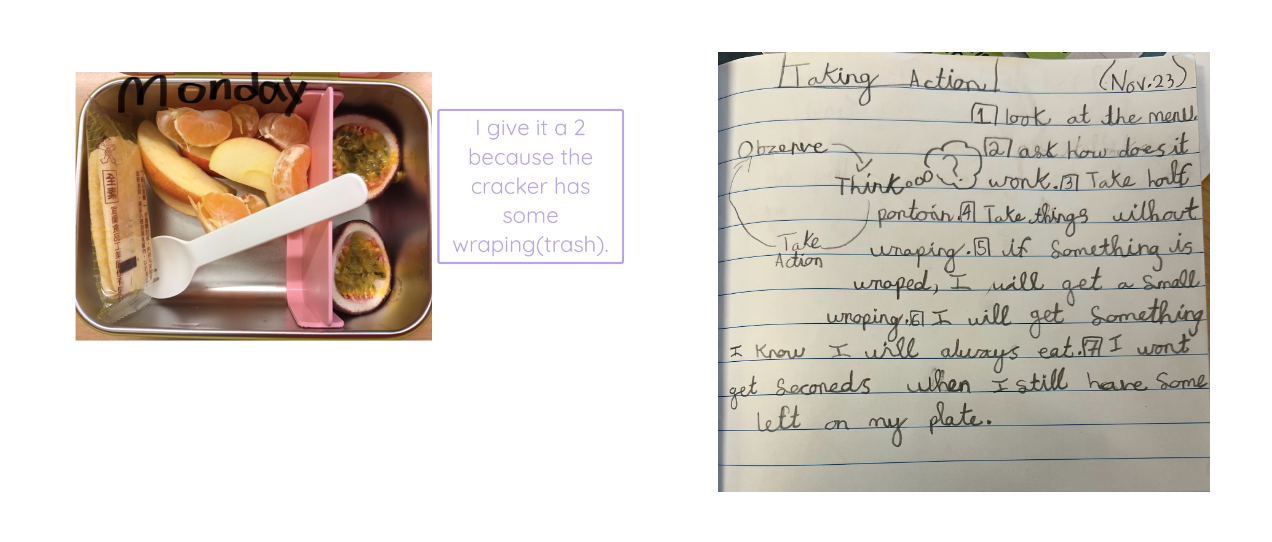

During the next session, we analyzed photos of the trash that had been sorted and brainstormed ideas of what would happen to this trash. This led to various discussions about waste, landfills, recycling, re-using and composting. Later in the unit, the students were able to visit a landfill to learn more about what can be reused and recycled and what will stay on our planet for many, many years to come.
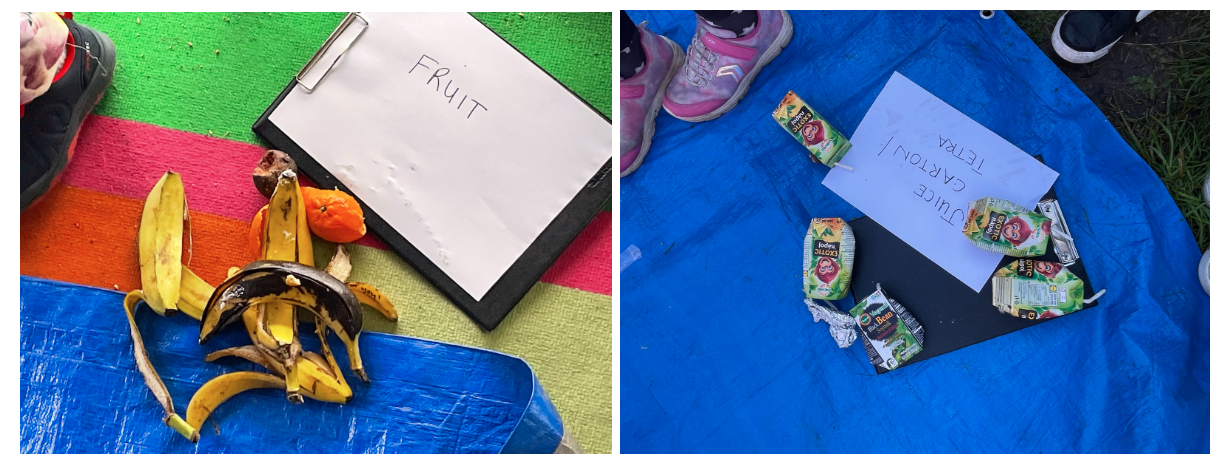
We decided to bury some trash from each group to see what happens to it under the ground over time. We also took some time to visit the massive trash containers that we use at school and the big compost bin that we have in the EC-Grade 2 playground.
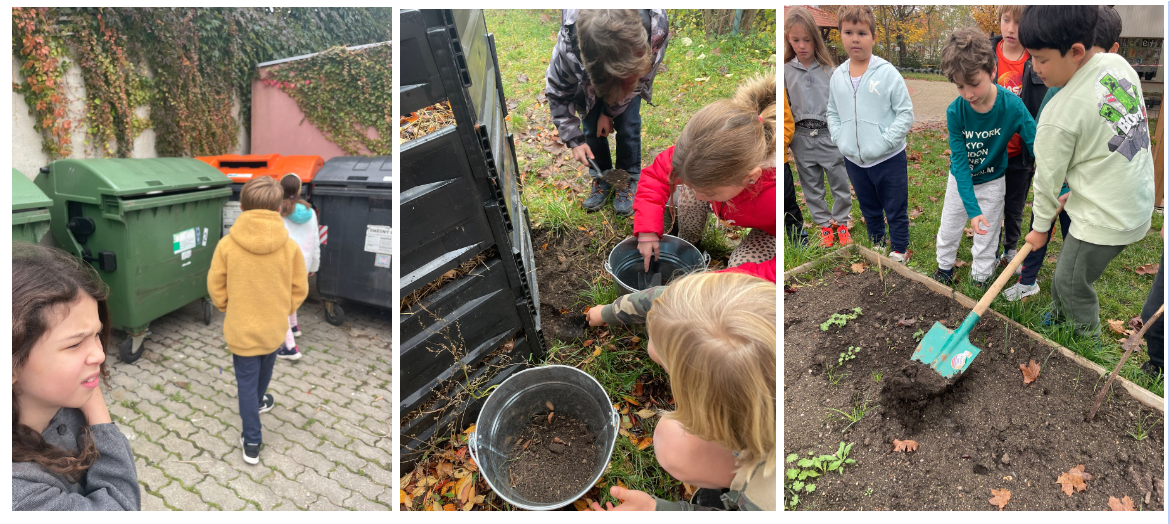
This made us think about composting things from our snack boxes – however, knowing that it might not happen because the compost bin was far away from the Grade 3 classrooms, we thought about how we could do this in our classrooms.
The year before, a Middle School teacher had come down to chat with the children about how she composts using a Bokashi composter at home. She showed different stages of the compost cycle and why she had chosen this particular method.

After the success of our Sustainability unit last year, we ordered four Bokashi composters. After our initial provocations, we felt it was time to introduce those to the classrooms and have them available to children during snack time.
The Bokashi can also compost items such as small amounts of meat and dairy products, so in some ways, it would be even more efficient than the bigger outdoor composter. The Bokashi “tea” is also harvested, and this provides a nutrient-dense liquid for indoor houseplants.
The hope is to be able to share and sell the products of the Bokashi composter with the community, and this, in turn, would finance the purchase of the Bokashi Bran.






Students who participate in the Gardening Club have been using the compost generated from our bigger composter (and soon will use the compost from our smaller Bokashi composters) to spread in the garden in the winter months. They will hopefully reap the benefits of this when they plant seeds in Spring and harvest vegetables later in the year. We also talked about how leaves can be used as both compost and as a place for animals to hibernate in the winter during these sessions.
“It’s very fun! I loved raking leaves and taking soil from the composter to our garden beds. If you compost, it makes good soil for the plants.”
Karel, Grade 3



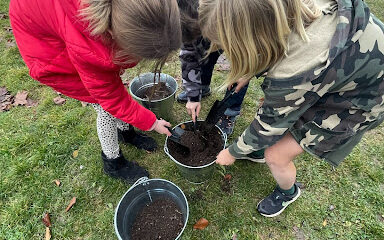
During this unit, students also have the opportunity to participate in gardening and to see up close the life cycle of plants as they grow a garden. They also get to sample what they grow and appreciate the work that goes into building a garden from scratch and the many different elements that it involves.



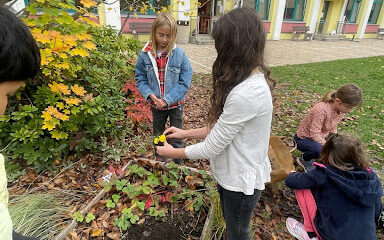
Some students from Grade 3 were invited to share this learning journey with parents at an SCA coffee morning, and parents were interested in learning about a new way of composting.

Our next goal, after we reflect on the success of composting in Grade 3, is to see how we can build on this with other grade levels. This whole project, as well as the whole unit on Sustainability, helps children to understand how they can make better choices and make a difference to the world around them. They are much more mindful of the choices they make and how these choices can affect other people and the planet.









